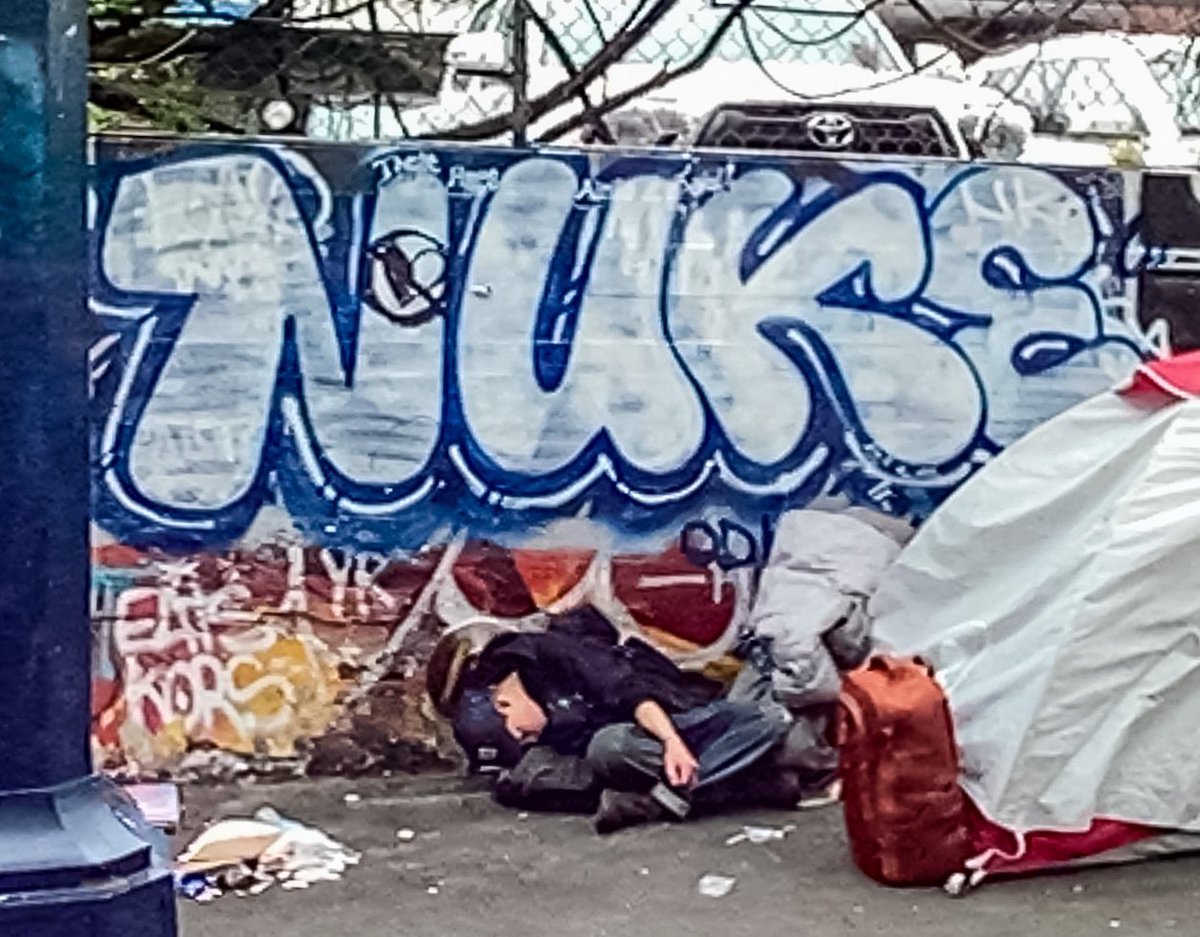
For years, energy experts have said that the declining cost of renewables & natural gas means we don't need nuclear
But now, as gas prices reach historic highs, nations are returning to coal and diesel, and reconsidering their closure of nuclear plants
michaelshellenberger.substack.com/p/skyrocketing…
But now, as gas prices reach historic highs, nations are returning to coal and diesel, and reconsidering their closure of nuclear plants
michaelshellenberger.substack.com/p/skyrocketing…
Over the last decade, energy experts repeatedly assured policymakers around the world that increasing the use of renewables, while shutting down nuclear plants, would make energy supplies more secure, while lowering prices.
But those reassurances have come into question as gas prices have spiked, resulting in street protests & contributing to inflation
“The sudden slowdown in wind electricity production off the coast of the U.K. in recent weeks whipsawed through regional energy markets” — @WSJ
“The sudden slowdown in wind electricity production off the coast of the U.K. in recent weeks whipsawed through regional energy markets” — @WSJ
"Gas and coal-fired electricity plants were called in to make up the shortfall from wind.”
The crisis has shaken policymaker confidence in the rosy pronouncements by renewables advocates.
The crisis has shaken policymaker confidence in the rosy pronouncements by renewables advocates.
High natural gas prices “took a lot of people by surprise,” a senior energy economist at a leading analytics firm told the Wall Street Journal. “If this were to happen in winter when we’ve got significantly higher demand, then that presents a real issue for system stability.”
Overdependence on renewables isn’t the only reason energy prices hit record-high levels in Europe. Post-pandemic economic recovery resulted in higher energy demand. A drought in Scandinavia meant less hydroelectricity was available for export.
And a decline in new gas prospecting after 2015, and too little natural gas stored on-site after a colder-than-expected winter, and, both played a role.
But the heavy reliance on renewables has made electricity supply more vulnerable to a single commodity’s volatility.
But the heavy reliance on renewables has made electricity supply more vulnerable to a single commodity’s volatility.
Today’s electricity grids mean that high gas prices cause energy price spikes and a return to the dirtiest forms of electricity production, including diesel and coal.
The return to coal was most dramatic in Germany.
The return to coal was most dramatic in Germany.
Electricity from wind was 20% lower in Germany in first half of 2021 than first half of 2020, resulting in 24% higher use of fossil fuels & 28% greater emissions from electricity. Coal was the #1 source of energy for electricity, comprising 27% of total electricity.
But other nations faced the same problem. Last week, Ireland was forced to warn of blackouts “due to a generation shortfall.” Lack of wind in Britain led its grid operator to ask French electricity giant, Électricité de France, to restart a coal plant in Nottinghamshire.
And California regulators last week requested permission from the federal government to violate air pollution regulations so fossil fuel plants, including diesel ones, can operate more than anticipated.
Wholesale gas prices in Europe are 5x higher than during same period in 2019. High prices resulted in Spanairds taking to the streets. Britain’s regulators allowed utilities to raise electricity prices by 12%. And Germany’s energy prices are at their highest level in 13 years.
A similar dynamic is underway in Asia. “We see the market balancing by burning a lot more coal and oil than in recent years,” said one analyst. “We're already seeing it in Asia, where gas prices are even higher than they are in Europe, countries are burning a lot of oil.”
Now, energy market watchers fear that prices could rise even more during the winter. “If it is cold, then we’re in trouble,” said an Italian gas company executive. The US State Department last Friday warned that Europe lacked sufficient energy supplies to survive the winter.
Earlier this month Europe’s Central Bank President, Christine Lagarde, described energy markets as one of the key reasons for price inflation more broadly.
In response, renewable energy advocates have called for even more reliance on renewables.
In response, renewable energy advocates have called for even more reliance on renewables.
Doing so will, in the words of the New York Times, “free consumers from being at the mercy of global commodity markets.” Meanwhile, wind industry advocates are claiming that off-shore wind turbines will prevent blackouts in California.
But while solar & wind can be said to be fuel-saving, they do not “free consumers” from global commodity markets. In contrast to coal and uranium, solar panels and wind turbines require increased dependence on natural gas, which they need to handle their intermittency.
This hasn’t been much of a problem for most of the last decade because natural gas prices have been at historic lows, thanks to technological breakthroughs in fracking and off-shore gas development, and heavy Wall Street investments in gas prospecting and drilling.
The gas boom allowed governments to add renewables to electricity grids at a relatively low cost, since gas is easy to switch on and off in response to intermittent sunlight and wind. Conversely, always-on nuclear plants were considered uneconomical because of...
... their comparative inflexibility; it’s more economical to run nuclear plants at 100% of their capacity, since reducing their output saves little to nothing in operations, but sacrifices revenue.
And in the short-term, the low cost of natural gas shielded rate-payers from the economic consequences of closing nuclear plants. In New York, for example, grid operators were able to increase generation from natural gas by 14% in the first month after closing Indian Point.
Some advocates of renewables and natural gas have claimed optimistically that new natural gas supplies will be available within a few weeks, but most experts say supplies will remain tight until 2024. “There is no quick fix to the current situation,” noted one analyst...
“European customers, therefore, hope the winter will be mild and favorable windy conditions mitigate rising costs this year.”
All of that has changed now with skyrocketing natural gas prices, which are contributing to inflation economy-wide.
All of that has changed now with skyrocketing natural gas prices, which are contributing to inflation economy-wide.
“European energy pricing dynamics offer a glimpse of what is in store for other commodity markets, with widening deficits and depleting inventories leading to elevated price volatility,” said a Goldman analyst adding, “demand destruction is the only option to rebalance markets.”
The impact could be devastating for British manufacturing. “There is simply no way that the [steel] sector can absorb additional price increases and remain competitive,” said the CEO of UK Steel “We have been urging the Government for years to take action level the playing field"
The Texas blackouts in February 2021 show just how serious the coming shortages could be. After several severe winter storms, a calm patch of cold air stretching across much of the US brought wind turbines to a halt while gas supplies dwindled and froze up.
The Texas crisis was also a wake-up call for investors. The price of renewable energy exchange traded funds (ETFs) boomed in 2020 at a rate up to 150% more than the S&P 500, and continued to boom in 2021 but crashed the week of the Texas blackouts and have persistently declined.
As of today, iShares Global Clean Energy has declined 25%, Invesco Solar has declined 30%, and one of the largest wind ETFs, First Trust Global Wind, declined 10%, since February 12, 2021.
High natural gas prices, and declining investor enthusiasm for renewables, increase the chance that governments will keep nuclear plants operating in the U.S., Europe, and Asia. Over the last five years, Environmental Progress has helped build a global pro-nuclear movement...
... in over two dozen nations around the world. Yesterday, the Illinois legislature passed legislation, advocated by a pro-nuclear coalition led by labor unions, Radiant Energy Fund, and the Campaign for a Green Nuclear Deal, to keep nuclear plants operating.
Now, support is growing for keeping nuclear plants operating in Belgium, South Korea, California, and even Germany. Although Korea’s once-proud nuclear construction industry has been severely damaged and several reactors closed and cancelled, nuclear sentiment is high.
In a poll earlier this month, 70% of South Koreans said the country should maintain or expand nuclear electricity, including 80% of those under 30 years old.
New voices are speaking up for nuclear power in Belgium.
New voices are speaking up for nuclear power in Belgium.
Assita Kanko, a charismatic and up-and-coming Member of the European Parliament for Belgium, has been speaking out on television and social media for keeping all of Belgium’s nuclear plants operating.
Maarten Boudry, a professor at Ghent University, is circulating a petition to save all seven of Belgium’s nuclear plants. And on Saturday, 300 pro-nuclear activists rallied at a “Stand Up for Nuclear” event in front of the Brussels-Centraal Train Station.
Emmeric Massaut, an aerospace engineer who works for Belgium’s rail agency, closed the event with an impassioned plea to save nuclear plants around the world.
Meanwhile, pro-nuclear heads of state, led by France and Hungary, have been showing newfound courage.
Meanwhile, pro-nuclear heads of state, led by France and Hungary, have been showing newfound courage.
They are defending the technology from Germany, and supported by grassroots pro-nuclear activists.
“Polling shows that there is majority support among members of both the German Liberal Party (FDP) & Christian Democrats (CDU) to keep nuclear plants operating,” said Bjorn Peters
“Polling shows that there is majority support among members of both the German Liberal Party (FDP) & Christian Democrats (CDU) to keep nuclear plants operating,” said Bjorn Peters
... scientific director of Energy and Nature Activist Network. “We are cautiously optimistic that the energy crisis will force politicians to reconsider the nuclear energy option”
If it doesn’t, Germans may be forced to choose between a cold winter and a coal-powered one.
/END
If it doesn’t, Germans may be forced to choose between a cold winter and a coal-powered one.
/END
But everyone said new nuclear in Britain was too expensive 🧐
https://twitter.com/javierblas/status/1437731422098366468
Just spit-balling here: maybe Spain and France should stop their headlong rush to shut down nuclear plants?
https://twitter.com/javierblas/status/1437729658661916672
• • •
Missing some Tweet in this thread? You can try to
force a refresh







